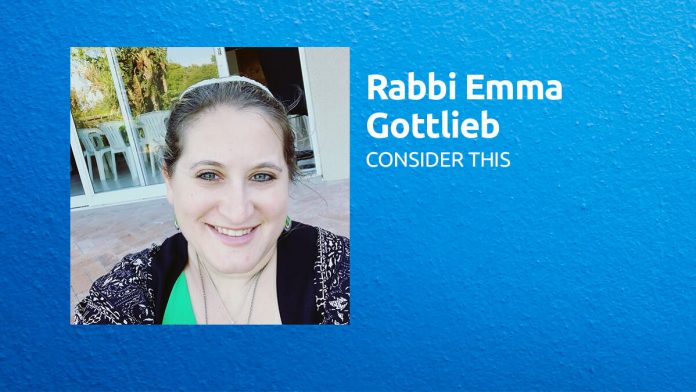By Rabbi Emma Gottlieb
At the beginning of the pandemic, when we first went into lockdown; when there was still so much we didn’t know about the virus; when there was so much fear and anxiety; when we feared our medical systems would be over-run and that bodies would pile up — back in those early days, Rabbis had to ask morbid questions and try to prepare ourselves for what was coming.
Were we heading into a year of far-too-many funerals? Would we even be able to hold funerals? How would funeral-directors and cemetery-staff and rabbis protect themselves?
And then, once we knew we could have funerals, we had to adapt them – which rituals and prayers would be unchanged? Would we want to introduce new rituals? What does a funeral look like on Zoom – and a shiva? I remember webinars where Progressive Rabbis discussed these questions together.
Just before lockdown, we had received guidelines for clergy who qualified for the necessary paperwork to prove we were allowed out of our homes in order to officiate at funerals, and my colleagues and I all had to add a trip to the police station to our lists of pre-lockdown preparations so that we could get our official letters stamped with official stamps.
I was the first one from our team to officiate during lockdown. I drove through very empty streets, through a very quiet city. I counted the cars I passed. There were less than 30 on my drive from Constantia to Pinelands, and on the way I checked my glove compartment at least three times to make sure my documentation was there if I got stopped at a check-point. The funeral was quiet and sad – more sad and more quiet than funerals from ‘before’. I apologised that we couldn’t stand closer together. That we couldn’t hug. That they couldn’t see my face. Afterward, I drove straight home. Took a scalding hot shower. Cried.
Now, we’re used to it. Our communities have adapted quickly. We have gotten used to having limited numbers at the cemetery, to wearing masks and gloves. We sadly remind one another that we can’t hug. We try to figure out who is behind each mask, and to convey with our eyes what we used to have a whole range of facial expressions to convey. Our team at Temple Israel has the Zoom-funeral and shiva down to a fine art — we have one rabbi in the cemetery and one in Zoom. We have someone at the cemetery with a phone, streaming to Zoom. We’ve adapted. As rabbis and synagogue communities, we have adapted.
This past week my great-uncle Monte passed away at the impressive age of 98. As a mourner, I have not adapted. I am not used to not being able to go home and be with my family. I am not used to watching my grandmother on a screen as she mourns her brother instead of being at her side, holding her hand, as I did at my grandfather’s funeral, and at my uncle’s. I am not used to not being able to see my father as he gives his beautiful eulogies; Not being able to hug him afterward. I am not used to knowing all my cousins are there, in the inter-web somewhere, watching along with me, but not being able to see their faces, since this service was broadcast one-way and not in zoom, which, for the record, I really don’t recommend. It didn’t feel like we were together. It felt lonely and disconnected.
I am grateful that the video and sound quality were excellent. That I could see my grandmother clearly. My mother and I watched together on Facetime and played a game of trying to guess who was who behind the masks. I am grateful that my father was able to give his eulogy over the phone, via a blue-tooth speaker held up to the microphone and that we could all hear him as clearly as if we were standing there, together. I am grateful, but I have not adapted. I do not want to adapt. We should not have to adapt.
As a rabbi, I innovate. As a member of a clergy team, I am proud of how we evolve as we must. As a Jew, I am in awe of how we can bring ancient rituals and modern technologies together to keep our traditions alive. But as a mourner – as a mourner I am sad and I am angry and I am bereft. I don’t want us to evolve and adapt. I want to get on a plane and wrap my arms around my loved ones and comfort them and be comforted.
As a rabbi, I don’t know how to fix this for those who are mourning loved ones from afar. I only know how to pray that this is temporary.
Temple Israel www.templeisrael.co.za
Published in the print edition of the December 2020/January 2021 issue.
Download the Dec/Jan issue PDF here.
Visit our Portal to the Jewish Community to see a list of all the Jewish organisations in Cape Town with links to their websites.
Subscribe to the Cape Jewish Chronicle and never miss another issue!
Follow Chronicle: Facebook | Instagram | Twitter | LinkedIn











